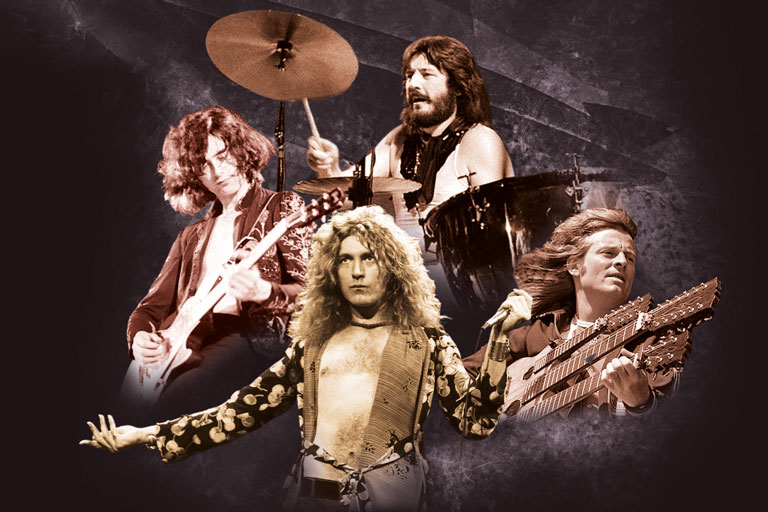
Stairway to Heaven: A Journey Through Musical Grandeur
In the realm of rock music, there are songs, and then there are anthems. Songs that capture the zeitgeist of a generation, that transcend time and genre to become universal touchstones of emotion and meaning. Led Zeppelin’s “Stairway to Heaven” is, without a doubt, one such anthem. It is a song that has captivated listeners for decades, its soaring melodies, poignant lyrics, and masterful musicianship weaving a tapestry of sonic and lyrical magic that continues to resonate with audiences worldwide.
Released in 1971 as the closing track on Led Zeppelin’s untitled fourth album, “Stairway to Heaven” marked a turning point for the band, showcasing their ability to craft extended compositions of immense depth and complexity. The song’s eight-minute journey takes the listener on a pilgrimage through a labyrinth of emotions, from the gentle acoustic strumming and Robert Plant’s ethereal vocals of the opening verses to the thunderous guitar riffs and impassioned vocal delivery of the climactic finale.
Jimmy Page’s masterful guitar work is a cornerstone of the song’s enduring appeal. His intricate solos, punctuated by searing bends and wah-wah pedal flourishes, intertwine seamlessly with Plant’s vocals, creating a dialogue of musical expression that is both virtuosic and deeply moving. The rhythm section of John Paul Jones on bass and John Bonham on drums provides an unshakeable foundation, their propulsive groove driving the song forward with unwavering intensity.
“Stairway to Heaven’s” lyrical tapestry is no less impressive. Plant’s words paint vivid pictures of spiritual yearning, personal struggles, and the search for meaning in a world of uncertainty. The song’s enigmatic narrative, open to interpretation and personal connection, has fueled countless discussions and debates, adding to its enduring mystique.
“Stairway to Heaven” has been covered by countless artists across genres, from rock and pop to country and classical, each interpretation bringing a unique perspective to the song’s timeless message. It has been featured in numerous films and television shows, its presence adding emotional depth and gravitas to the scenes it accompanies.
The song’s impact on popular culture is undeniable. It has consistently topped polls of the greatest rock songs of all time, and its influence on music is immeasurable. “Stairway to Heaven” is more than just a song; it is a cultural phenomenon, a testament to the power of music to transcend boundaries and touch the human spirit.
“Stairway to Heaven” is a journey, a pilgrimage, an ascent. It is a song that demands to be heard, to be felt, to be experienced. It is a masterpiece of rock music, a testament to the enduring power of human creativity.